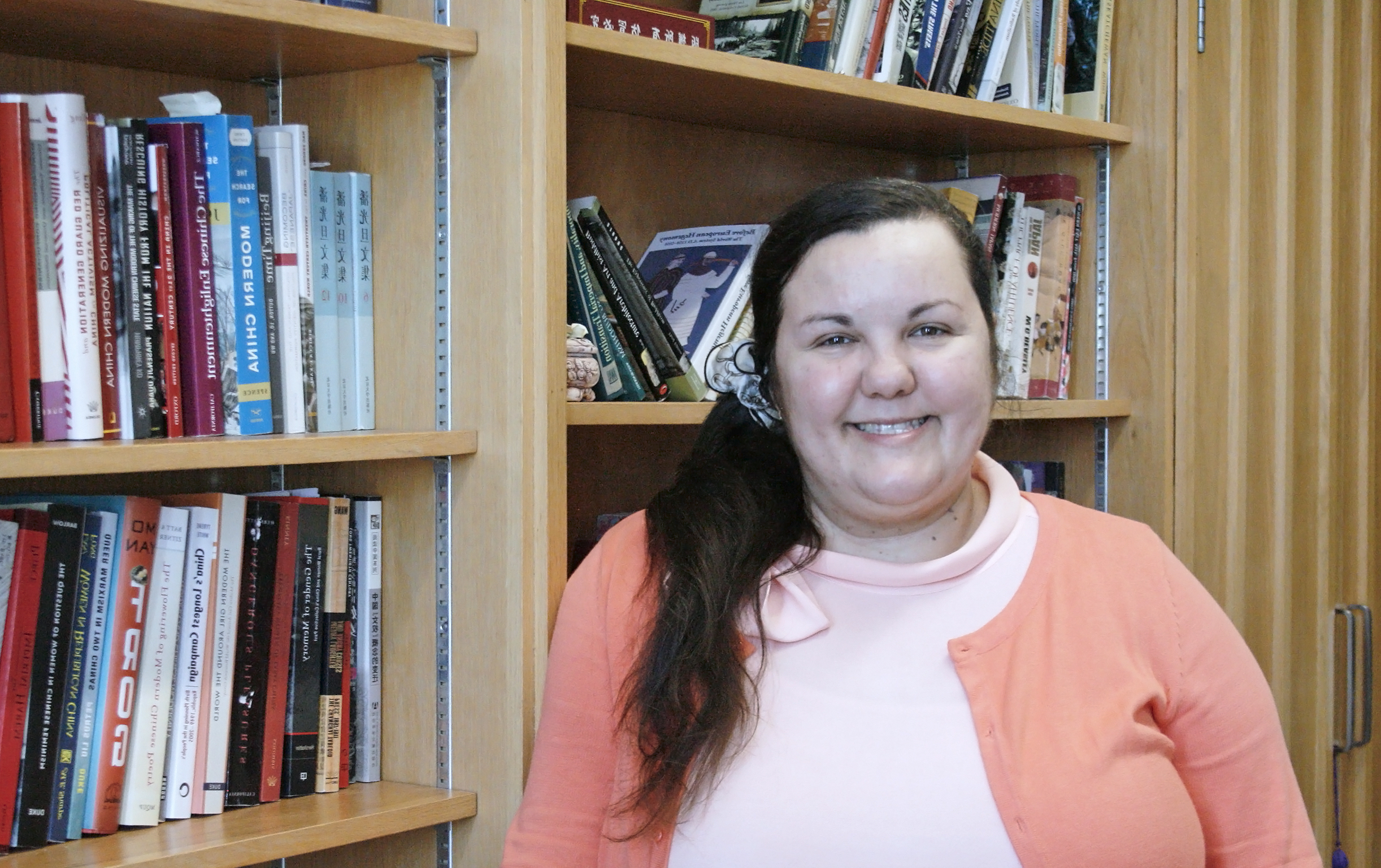
Better Teaching better Research: FYRE by the book!
Mirela David has offered First-Year Research Experiences (FYRE) since her first year of teaching at the UofS. She teaches FYRE classes in both Women’s and Gender Studies and History. From the benefits of working with research coaches to opportunities to enrich her own research, David’s experience with FYRE means it would be senseless to teach a first-year course any other way.
Mirela David has offered First-Year Research Experiences (FYRE) since her first year of teaching at the UofS. She teaches FYRE classes* in both Women’s and Gender Studies and History. From the benefits of working with research coaches to opportunities to enrich her own research, David’s experience with FYRE means it would be senseless to teach a first-year course any other way.
Students in David’s classes go through a steep learning curve, not just because of the content but also because of the manner it is presented in. Her research interests and teaching approach ensure students read higher-level theoretical works from the social sciences, including Michel Foucault, Judith Butler, and Gayatri Spivak. She challenges students to grapple with advanced concepts in gender studies and gender history, with the necessary support to get learners successfully through the journey. According to David, FYRE courses are not really any more work than your average course, but they do push you to “reframe things in your mind” and “make you more engaged”. Practically, David contends that FYRE develops students’ skills such as group work to writing skills, along with critical thinking and the ability to network. But above all, by teaching with FYRE she empowers students to do their own original research in ways that gives them more ownership and a “sense that they’re doing something that matters.”
One of the things David appreciates most is that teaching is much more streamlined and students get better quality learning as a result of having research coaches (RC) and teaching assistants (TA) as part of her instructional team. Because TAs are responsible for marking and RCs are trained in helping students with basic research skills related to reading sources and writing syntheses, David can focus on spending her class time on what she is most passion about: the class content that relates to her research. Especially in a smaller department like Women’s and Gender Studies, she considers the support she receives as a FYRE instructor to be highly valuable.
What David has realized over the years is that her teaching has become integrally linked with her research. She doesn’t go to class simply to impart her own knowledge on her students, but to think through the same problems, questions and issues that occupy her professionally with a group of engaged students occupying different perspectives. At times, students challenge her to rethink aspects of her own investigation or to change her approach. Other times, members of her classes come across materials – whether articles, novels or case studies – of which she wasn’t aware. In the end, being a FYRE instructor is something that “helps you advance in a very pragmatic way… Having the whole class think about [your] ideas with a fresh eye and…making your research intelligible for multiple audiences… that’s the first step to writing a book!”
*If you are interested in learning more about incoorporating FYRE into your classes please contact kara.loy@usask.ca

